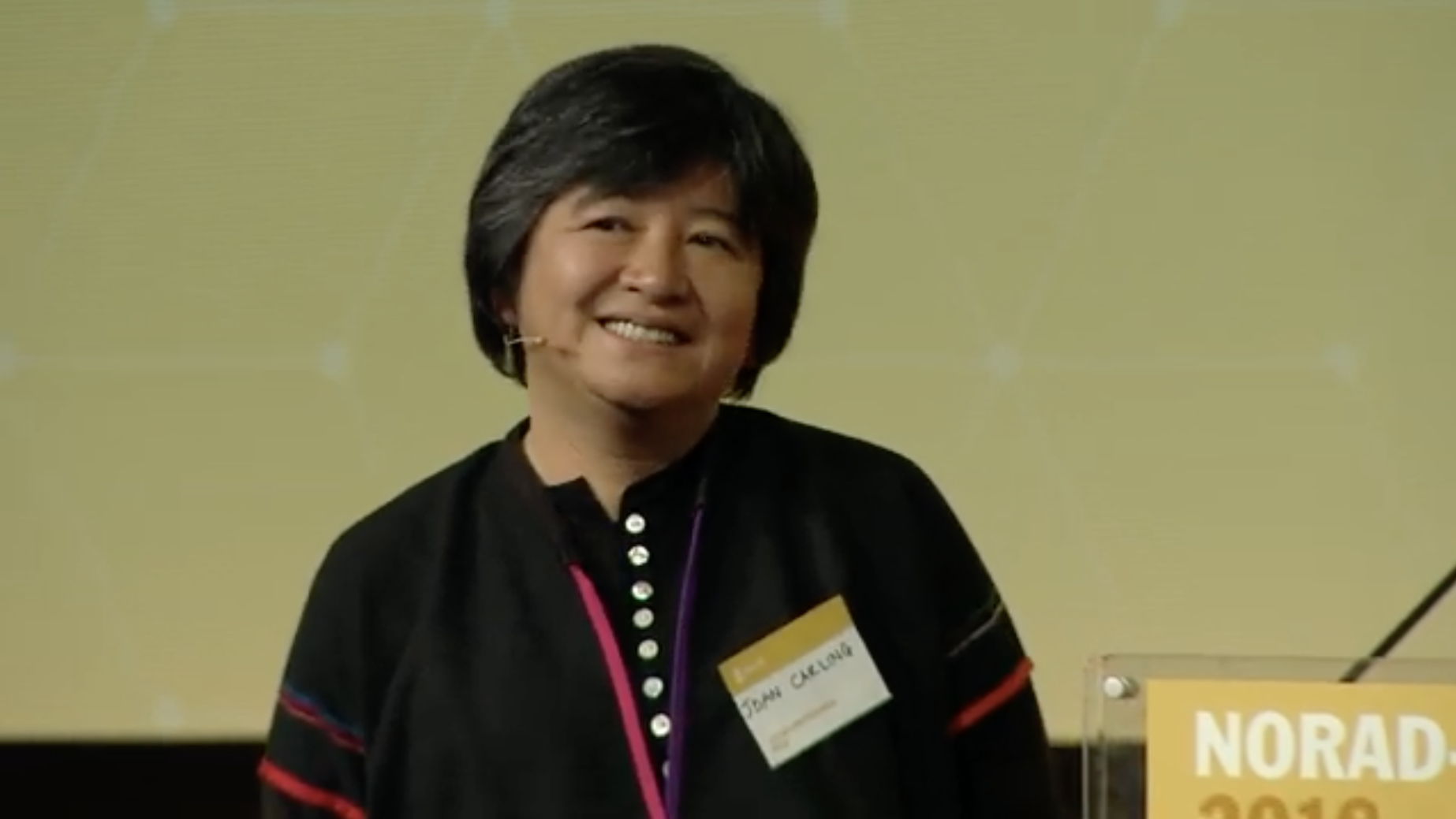BY
Indigenous women around the world have been facing different challenges such as racism, violence, exclusion or colonialism, loss of their land and culture for many centuries.
In recent years, we had seen courage women from indigenous communities fighting against powerful mining or oil companies to preserve their culture and environment, leading social campaigns to stop domestic violence.
Indigenous News of the World (INW) interviewed by email Joan Carling, who is an indigenous activist from the Philippines with more than 20 years of working on indigenous issues from the grassroots to the international level.
Mrs Carling is currently the co-convenor of the Indigenous Peoples’ Major Group for Sustainable Development-IPMG.
The human right activist was the General Secretary of the Asia Indigenous People Pact (AIPP). She was awarded the Lifetime Achievement Award by UN Environment in September 2018.
1.For centuries Indigenous people have been forced to assimilate and live like white people. What is the contribution of indigenous women to preserve their culture and customs?
Indigenous women are active indigenous knowledge holders and practitioners, which have sustained the culture and customs of indigenous peoples in many ways.
These include teaching their children of their indigenous language, on such as the reciprocal relations of indigenous peoples with living things and elements in the environment, to do no harm and always uphold the common good, on indigenous food systems, indigenous songs, music, dance,on sacred rituals among others, these are all important in ensuring that indigenous cultures and customs are not forgotten, and social cohesion is sustained.
However, in patriarchal societies, indigenous women need to be included in decision-making processes.
![]()
Photo: Jorge Jordán
2.What is the role played by indigenous women in this century?
Indigenous women continue to play their roles as mentioned above, and also in relation to conflict-prevention ; and in defending the lands, territories and resources of indigenous peoples.
Indigenous women are impacted severely by an increasing number of conflicts indigenous territories as they will not be able to do their roles and are also vulnerable to violent attacks, so it is important for them to take the lead in preventing conflicts as men are usually the ones involve in conflicts and are more aggressive.
![]()
Photo: Instituto del Bien Común
Likewise, given the more aggressive plans of governments and corporation to take over the lands and resources of indigenous peoples, more and more indigenous women are in the frontline of their community struggles to defend their lands and resources from large scale mining, commercial logging, agribusiness and projects that may displace them, destroy their livelihoods, cause environmental disasters or destroy their sacred sites.
Indigenous women are the ones closest to nature — they know different medicinal plants, wild food, the interdependence between human and nature, and thereby resource extraction and destruction of the environment will have profound impacts for future generations and in sustaining the environment.
Thus, indigenous women feel they have everything to lose if they are forcibly evicted from their lands, and their resources are taken away or destroyed.
3.What are the main challenges Indigenous women have to face these days?
Land-grabbing and destruction of indigenous peoples resources as provided above, discrimination and violence to indigenous women; and lack of participation in decision making at all levels.
4.Where is the most dangerous place on earth for indigenous women to grow up?
In countries with authoritarian and racist leaders —e.g Brazil.
Source:
Related to SDG 10: Reduced inequalities and SDG 5: Gender equality



